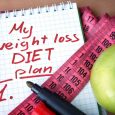5 Low Carb Misconceptions
A low-carb diet can actually be a very effective eating plan for weight loss. Sadly, however, this way of eating has received a lot of unfortunate press. One large reason for this is a number of common misconceptions about the effects that limiting carbohydrates can have on the body. Many people are also not entirely sure of how these diets are structured and what they can include.
It is important to note that the widespread adoption of this type of eating plan could have a very significant impact on food sales, particularly the sale of pre-packaged, processed foods, such as sliced white breads, boxed rice and pasta mixes, snack cakes and potato chips among other things. Given the substantial financial losses that could occur if a healthier, low-carb eating plan was taken on by numerous individuals, it is no surprise that the following misinformation is widely publicized.
Low-Carb Diets Do Not Allow Dieters To Eat Any Carbs Whatsoever
There are no popular low-carb diet plans that encourage the long-term avoidance of all carbohydrates. Not only is this a very difficult way to eat, but it is also one that cannot possess any long-term benefits for the body. Even the Atkins diet only recommends a total cessation of carbohydrate consumption for a two-week period as a way of preparing the body for a long-term and more balanced eating plan. It is also important to understand that this particular phase of the diet can be skipped by those who find it too difficult to subsist on protein alone for fourteen days.
The typical low-carb diet actually encourages people to cut out foods that have no inherent benefits for the body rather than essential and nutritious selections. Many of these are processed and refined goods that have been stripped of their natural nutrients. Thus, rather than eliminating entire food groups, dieters are simply leaving a number of store-bought goods that are loaded with fat, sugar and empty calories, on the store shelves.
Low-Carb Diets Do Not Contain A Sufficient Amount Of Fiber
One of the best forms of carbohydrates to eat on low-carb diets are fruits and vegetables. Because fiber is not fully digested, fresh produce helps to keep people feeling fuller, longer. Many low-carbohydrate foods are actually very high in fiber, make it unnecessary for people to monitor their fiber intake when eating in this fashion. In fact, fruits and vegetables make up the very base of many food pyramids for low-carb diets, making soluble fiber a mainstay. Rather than avoiding produce, people should be getting a colorful selection each and every day.
These Eating Plans Are Bad For Your Kidneys
Rather than harming the kidneys, a proper low-carbohydrate eating plan will allow them to excel at what they do by alleviating many of the food toxins that they have long been contending with. Although people who are at risk for developing kidney disease are generally recommended to adhere to low-protein eating plans, a diet that is low in carbohydrates does not normally exceed the recommended protein level.
A lot of the misinformation that is being circulated about low-carb diets may be the result of a general lack of solid facts. It is not irrational to assume, however, that the proven ability of these plans to produce rapid and dramatic weight loss has resulted at least once in popular culture in a widespread popularity that could be harmful to many major food manufacturers if repeated. If properly studied, however, the nature of this type of diet and the many benefits that can be gained from adhering to it, make it not only a sound method for dropping unwanted pounds and fat, but for increasing personal health overall.
Best Low-Carb Dieting Tips








